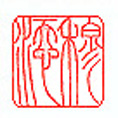— go back
— go back to list of extracts
— skip to next extract

Philodemus nodded, though it was clear that he was disappointed. Euanthē agreed, but not with any enthusiasm. So somewhat later, she and I set off up the track with someone to guide us part of the way. We didn’t talk much. The verdant and varied scenery was a pleasure, but I had heavy thoughts, and perhaps Euanthē too was not quiet in her mind.
After a good walk up the track we rounded a steep corner which led into a fine long valley a little below where we stood. In truth it was a plain rather than a valley, and had probably been fashioned from the hillside long before, making a very wide terrace. Our guide pointed, and left us. We paused, in pleasure.
The wide terrace followed the countours of the hill, and we could not see the other end of it from where we stood. There were plantations of vines and olive trees, interspersed with fields of cereals and aromatics, divided by a wide gulley quite near our outlook, in which other fields could be glimpsed. It seemed a small paradise, and overlooking it, set somewhat higher on some outcrops of rock below the increasingly steep mountain-side as we looked up, were the dwellings of the Philippidæ, made in stone, elegant and striking in themselves but making a fine complement and foil to the cultivated fields which they overlooked and to the encircling trees and the mountain above.
I drew breath, and looked around. The wide gulley had a lively stream which flowed through. At the lower edge, the stream encountered a stone dam, apparently recently constructed, and providing a means of irrigation from the small lake which it created, before being allowed to continue its course to the lower lands. Higher up I glimpsed other recent stoneworks, probably aimed at diverting part of the flow of the higher stream towards the two main sides of the estate.
(2/7)